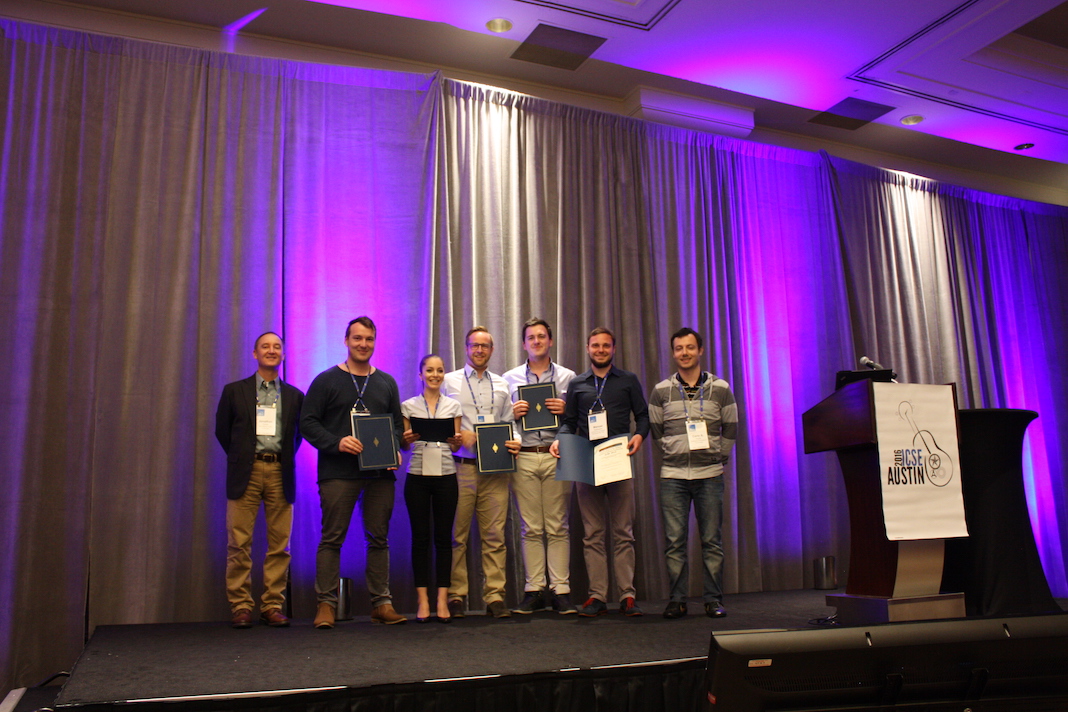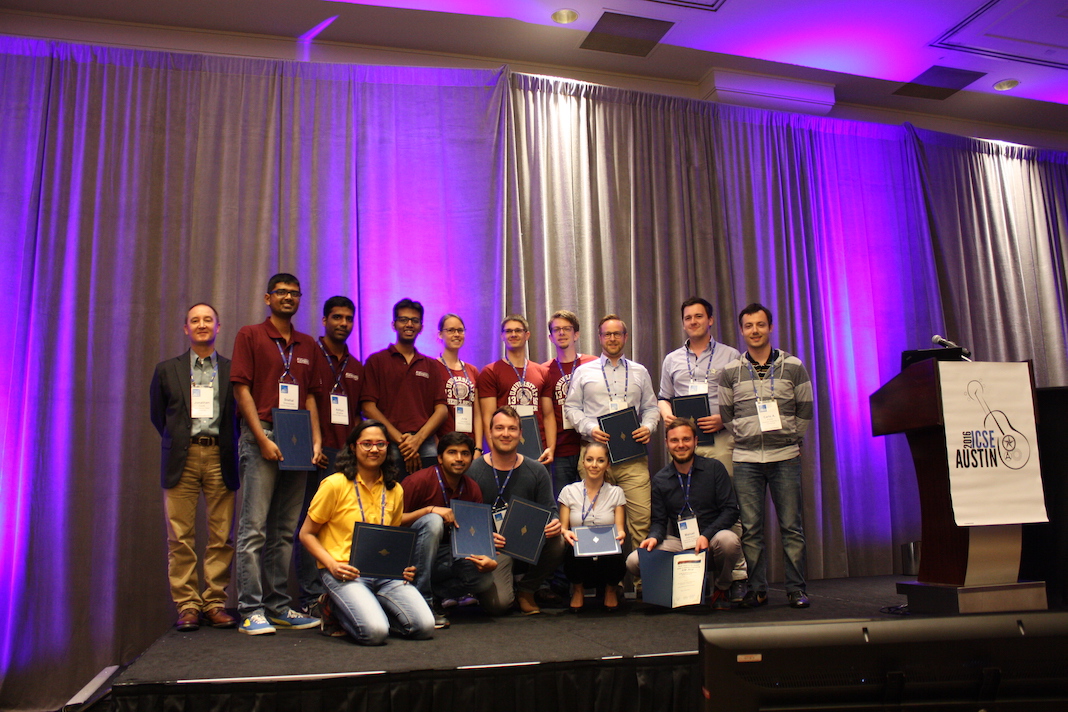SCORE 2016 in Austin, Texas!
SCORE 2016 will be held as part of ICSE 2016 in Austin, Texas.
The SCORE Contest is aimed at promoting and fostering software engineering in universities worldwide. Student teams from all over the world participate in a competition for students from undergraduate to master's level. Each team will develop a software project chosen from a list of projects proposed and sponsored by program committee members. The final deliverable is a report and an accompanying executable system. Evaluation will based on the quality of all aspects of the software engineering process followed, as well as the resulting system. In order to accommodate a wide range of academic calendars, the SCORE 2016 Contest will run from January 2015 to January 2016. Finalist teams will be invited to ICSE 2016 in Austin, Texas.
The SCORE 2016 Winners
The overall winner of SCORE 2016 is the project:
MeetMe, A Meeting Planner developed by Manuel Gollmann, Danny Friedrich, Natascha Kania, Ronald Robertson, and Malte Kloß from the University of Applied Sciences in Neu-Ulm, Germany
Congratulations to the team, and thanks to all finalists for their great presentations at the conference!


SCORE Finals at ICSE 2016
Congratulations to the three finalist teams of SCORE 2016!

- Agile TweetViz by Kedar Pitke, Aditya Bivalkar, Tanmay Patil, Meenal Kulkarni, and Snehal Shendware from Arizona State University, USA
- CoCo: A Code Coach by Sophia Stahl, Jan Pawellek, Dominik Sterk, and Julia Kreutzer from Heidelberg University, Germany
- MeetMe, A Meeting Planner by Manuel Gollmann, Danny Friedrich, Natascha Kania, Ronald Robertson, and Malte Kloß from the University of Applied Sciences in Neu-Ulm, Germany
The finalist teams will present and demo their projects during the poster session at the Wednesday evening reception (Wednesday 18 May 2016, starting at 7:00 PM). Anyone at ICSE is welcome to join!
A short interview with Julia Kreutzer from team CoCo about their SCORE project:
Organization
The SCORE 2016 contest is organized by:
- Jonathan Cook, New Mexico State University (co-chair)
- Carlo A. Furia, Chalmers University of Technology (co-chair)
Program Committee
The program committee proposes projects, sets rules and policies, reviews project results, and selects finalists for SCORE 2016 in Austin, Texas. It is a substantial amount of work over a substantial period of time, and we are grateful to these leading researchers, teachers, and practitioners for volunteering their effort.
- Nazareno Aguirre, Universidad Nacional de Río Cuarto, Argentina
- Benoit Baudry, INRIA, France
- Alexandre Bergel, University of Chile, Chile
- Domenico Bianculli, University of Luxembourg, Luxembourg
- Paolo Bonzini, Red Hat, Inc., Italy
- Yuanfang Cai, Drexel University, USA
- Yvonne Coady, University of Victoria, Canada
- Ivica Crnkovic, Mälardalen University, Sweden
- John Georgas, Northern Arizona University, USA
- Jeff Gray, University of Alabama, USA
- Eunkyoung Jee, KAIST, Korea
- Einar Broch Johnsen, University of Oslo, Norway
- Akash Lal, Microsoft Research, India
- Otávio Lemos, Universidade Federal de São Paulo, Brazil
- Timothy Lethbridge, University of Ottawa, Canada
- Jonathan Maletic, Kent State University, USA
- Timothy Menzies, North Carolina State University, USA
- Martin Nordio, ETH Zurich, Switzerland
- Richard Paige, University of York, UK
- Liliana Pasquale, Lero — the Irish Software Engineering Research Centre, Ireland
- Michael Pradel, TU Darmstadt, Germany
- Rafael Prikladnicki, PUCRS, Brazil
- Derek Rayside, University of Waterloo, Canada
- Roshanak Roshandel, Seattle University, USA
- Matteo Rossi, Politecnico di Milano, Italy
- Kevin Schneider, University of Saskatchewan, Canada
- Elena Sherman, Boise State University, USA
- Paola Spoletini, Kennesaw State University, USA and Universitá dell'Insubria, Italy
- Claudia Szabo, University of Adelaide, Australia
- Shingo Takada, Keio University, Japan
- Zhenchang Xing, Nanyang Technological University, China
- Michal Young, University of Oregon, USA

 ICSE 2016
ICSE 2016